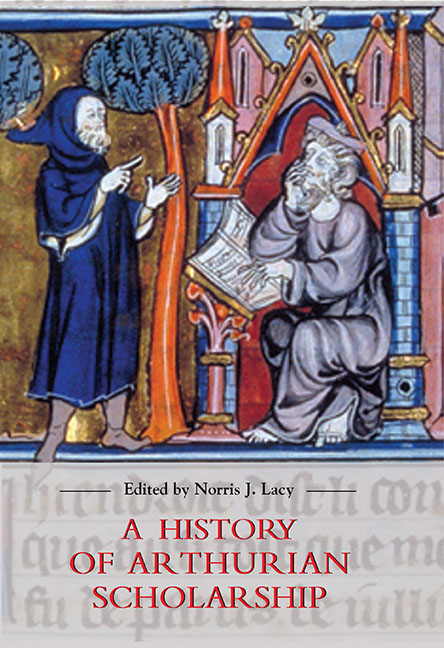Scandinavian Arthurian Literature
Published online by Cambridge University Press: 18 March 2023
Summary
The year 1226 plays an important role in the history of Arthurian literature in Scandinavia, for in that year a certain Brother Robert produced at the behest of King Hákon Hákonarson of Norway (r. 1217–63) a translation of Thomas de Bretagne's Tristan. This work, known as Tristrams saga ok Ísöndar, is invaluable for Arthurian literature, since today it is the only complete witness to Thomas's romance. It inaugurated a program of translation at the Norwegian court that was to include other Arthurian narratives. Except for saints’ lives, no imported text was to have as significant an impact on indigenous literature as Tristan. In the wake of Tristrams saga, other Arthurian narratives were translated into Old Norse-Icelandic: Chrétien de Troyes's Erec et Enide (Erex saga), Yvain (Ívens saga) and Perceval (Parcevals saga and Valvens þáttr); the Arthurian lais Lanval (Januals ljóð), Chievrefoil (Geitarlauf) and Le mantel mautaillié (Möttuls saga); ‘Merlin's Prophecies’ (Merlínússpá) from Geoffrey of Monmouth's Historia regum Britanniae – which itself became known in translation (Breta sögur) in Scandinavia – was translated by the Icelander Gunnlaugr Leifsson (d. 1218); finally, in the year 1303 Chrétien's Yvain was translated once more, this time into Old Swedish, and is known as Hærra Ivan. The translations generated a couple of Icelandic adaptations of the Arthurian matter in the late Middle Ages, namely Tristrams saga ok Ísoddar, a drastic recreation of the Norwegian romance, and Skikkju rímur, a metrical adaptation of Möttuls saga. In the seventeenth and eighteenth centuries two German chapbooks were translated into Danish: the prose version of Wirnt von Grafenberg's Wigalois (Her Viegoleis med Guld Hiulet) and the prose Tristan, presumably based on Eilhart von Oberge's Tristan (En tragoedisk Historie om den ædle og tappre Tistrand). These translations into Danish in turn were translated into Icelandic and then also generated rímur versions, that is, metrical narratives. In early modern times, substantially deformed Arthurian matter, presumably the result of oral transmission, surfaces in Scandinavian ballads and folktales.
Scholarship in Scandinavian Arthurian literature has focused almost without exception on the Middle Ages. From the start, the state of literary scholarship has paralleled the production of editions and advances in text editing; milestones of scholarship have been associated with the names of editors who not only prepared the texts but also published important articles in support of the works they edited.
- Type
- Chapter
- Information
- A History of Arthurian Scholarship , pp. 169 - 178Publisher: Boydell & BrewerPrint publication year: 2006



